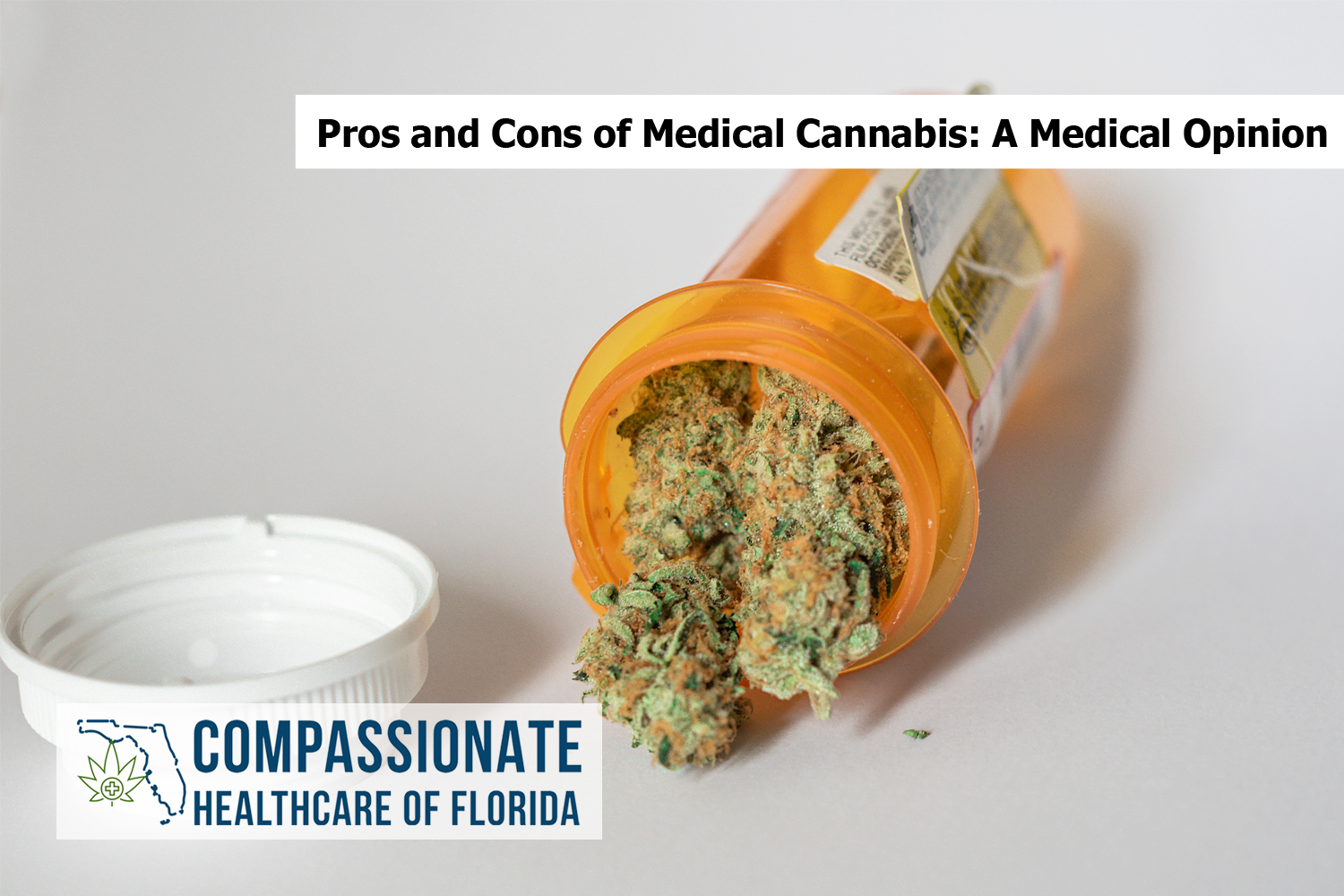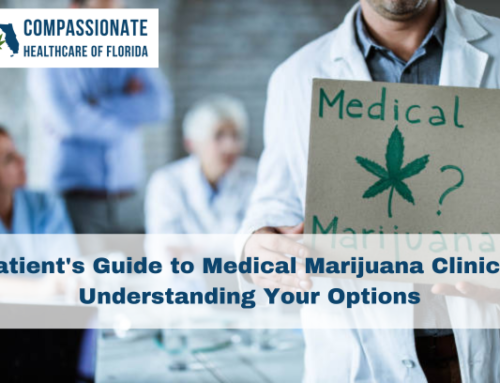
It is essential for patients and medical marijuana doctors to better understand the pros and cons of medical cannabis. Medical marijuana has been used by people worldwide for thousands of years, but there are many misconceptions about its safety and efficacy. This article will discuss how medical cannabis can be an effective treatment option for specific conditions such as chronic pain management or nausea in cancer treatments; however, there are also some downsides associated with ongoing use that must be considered before recommending this therapeutic agent.
What is Medical Cannabis, and how does it work?
Medical marijuana is a plant-derived product that contains the active ingredient THC. The two main ingredients in medical cannabis, which are responsible for its effects on pain and nausea relief, are delta-nine tetrahydrocannabinol (THC) and cannabidiol (CBD). Cannabinoids work by mimicking endocannabinoids, chemicals produced naturally within our bodies to regulate sleep, moods, sensations of pain or pleasure, as well as other bodily functions like digestion and immunity. Research has shown that when cannabinoids attach themselves to cannabinoid receptors such as CB-receptors located in different parts of the brain, they can reduce inflammation and relieve chronic discomfort. Medical cannabis also stimulates appetite; however, more studies have been performed on this claim than any other.
Pros of Medical Marijuana
Medical marijuana is a therapeutic agent that has been shown to be very beneficial in treating cancer, epilepsy, and Alzheimer’s disease. It also can help with chronic pain management. In addition, it seems as if more studies are showing potential benefits for conditions such as Schizophrenia or Crohn’s disease. The side effects are minimal compared to other treatments like opioids. Some can include the potential for addiction, respiratory aggravation from smoking, increased anxiety and drowsiness.
Anti-nausea: Cannabis has been shown to suppress chronic nausea in some patients with a terminal illness by stimulating appetite. Marijuana is often prescribed for chemo patients who lose their appetites after treatment because it stimulates the patient’s “hunger” receptors, making them feel more satisfied from eating less food at each mealtime.
Studies have shown a correlation between anti-nausea drugs and cannabinoids (marijuana), showing promise in helping those who suffer from debilitating vomiting caused by cancer treatment. Cannabis has been effective at reducing these symptoms without causing harmful side effects like many conventional treatments because they often make people sicker before they get better or require them to take breaks in their treatment due to high doses of steroids.
Appetite stimulation: Smoking or ingesting marijuana will stimulate your sense of hunger, leading you to eat more throughout the day than without its use.
Anti-inflammatory: Cannabis has been shown to suppress chronic inflammation in some patients with a terminal illness by reducing the body’s immune reaction.
Anxiety and mood disorders: Smoking cannabis can also have an anti-anxiety effect on some people. It is not uncommon for those who suffer from anxiety disorders like PTSD or generalized social anxiety disorder (GAD) to use medical marijuana as a means to help them cope with difficult situations without experiencing adverse side effects often associated with prescription medications. The drug is also often prescribed for people who suffer from paranoia or depression as well. It helps them relax and think more clearly.
Sleep Quality: Marijuana has been shown to improve sleep quality in healthy individuals and those living with insomnia by increasing the time it takes before falling asleep, lowering the number of times they wake up during the night, reducing interrupted sleep due to pain, and increasing total sleep time.
Chronic pain: Cannabis can be used for pain management, which is where it gets its medical benefits. Research has shown that in some cases, specifically those with chronic pain or inflammation-related diseases like Crohn’s disease and arthritis, medical marijuana can help alleviate symptoms. Marijuana can also be used as a painkiller for various ailments that might not respond well to other treatments like opiates or antidepressants. There are many types of cannabis products with varying strengths, so it’s best for the patient and doctor to work together on finding the right one for their needs.
Cons of Medical Marijuana
Medicinal cannabis still isn’t a one-size-fits-all solution that will work for everyone who needs it. This means there could be adverse effects on some individuals.
Short-term memory loss: Research has shown that cannabis may contribute to short-term memory impairment. The exact mechanism behind this is not known. However, it’s thought that there could be some link between the drug and disruptions in nerve cell receptors or how neurotransmitters work.
Tiredness: as with any medicine, there are chances for drowsiness to occur with the use of medical marijuana. Patients may experience fatigue; however, this is dependent on the type of cannabis used as well as the method of use or how it is consumed.
Learning difficulties: There are mixed reports on whether marijuana use can affect a person’s ability to learn new information. Some people say they’ve experienced no difficulty concentrating after using cannabis, while others have expressed that their problem-solving skills were impaired. This differs based on what kind of task you’re doing when high, as well as your reaction to the drug, so it’ll vary from user to user and requires more research into long-term effects.
Negative impact on lung and overall health: Smoking cannabis is a known carcinogen and can lead to bronchitis, collapsed lung tissue (atelectasis), chronic cough, acute respiratory distress syndrome, or pneumonia if smoked. This is extremely unlikely and It’s less harmful when vaporized, but it still has the potential to cause damage to the lungs over time because of its effect as an irritant.
Cannabis dependence: Another negative side-effect is that cannabis use might lead people who are regularly using it for medical purposes may become dependent on the drug and need more frequent doses than recommended by their doctor to control symptoms from worsening.
In conclusion, medical cannabis has been proven to offer many more benefits than disadvantages for various patients. With more research being done, this list will likely continue to grow, and the medical community’s understanding of these substances will expand.
Medical Marijuana Doctor in Florida
Medical marijuana is available to patients diagnosed with debilitating conditions including cancer, AIDS, glaucoma, PTSD, Anxiety, intractable seizures (eclampsia), severe nausea, chronic pain, and persistent muscle spasms such as those associated with multiple sclerosis or paraplegia, or other conditions where traditional medicine offers no relief. We provide consultations for obtaining a Medical Marijuana Card with our experienced physicians at Compassionate Healthcare of Florida’s office by appointment. If you have more questions about the pros and cons of medical marijuana, please feel free to contact us today!



